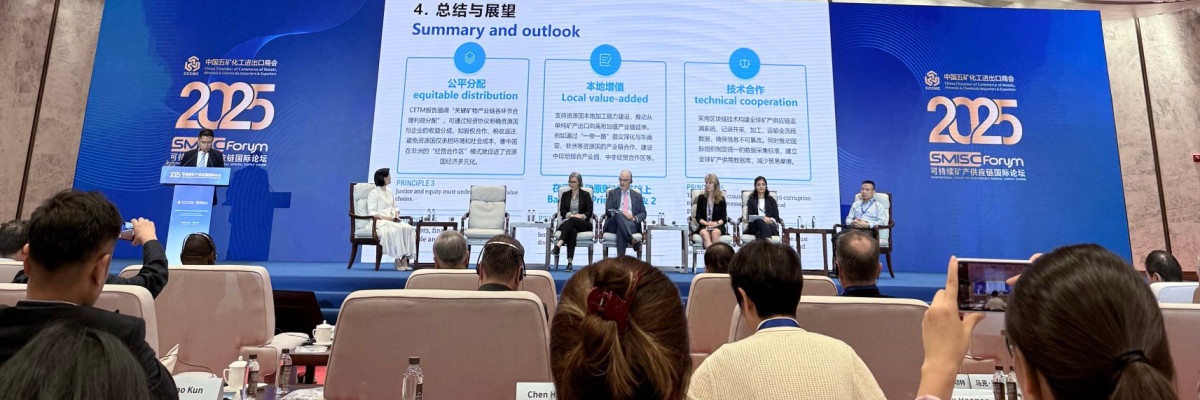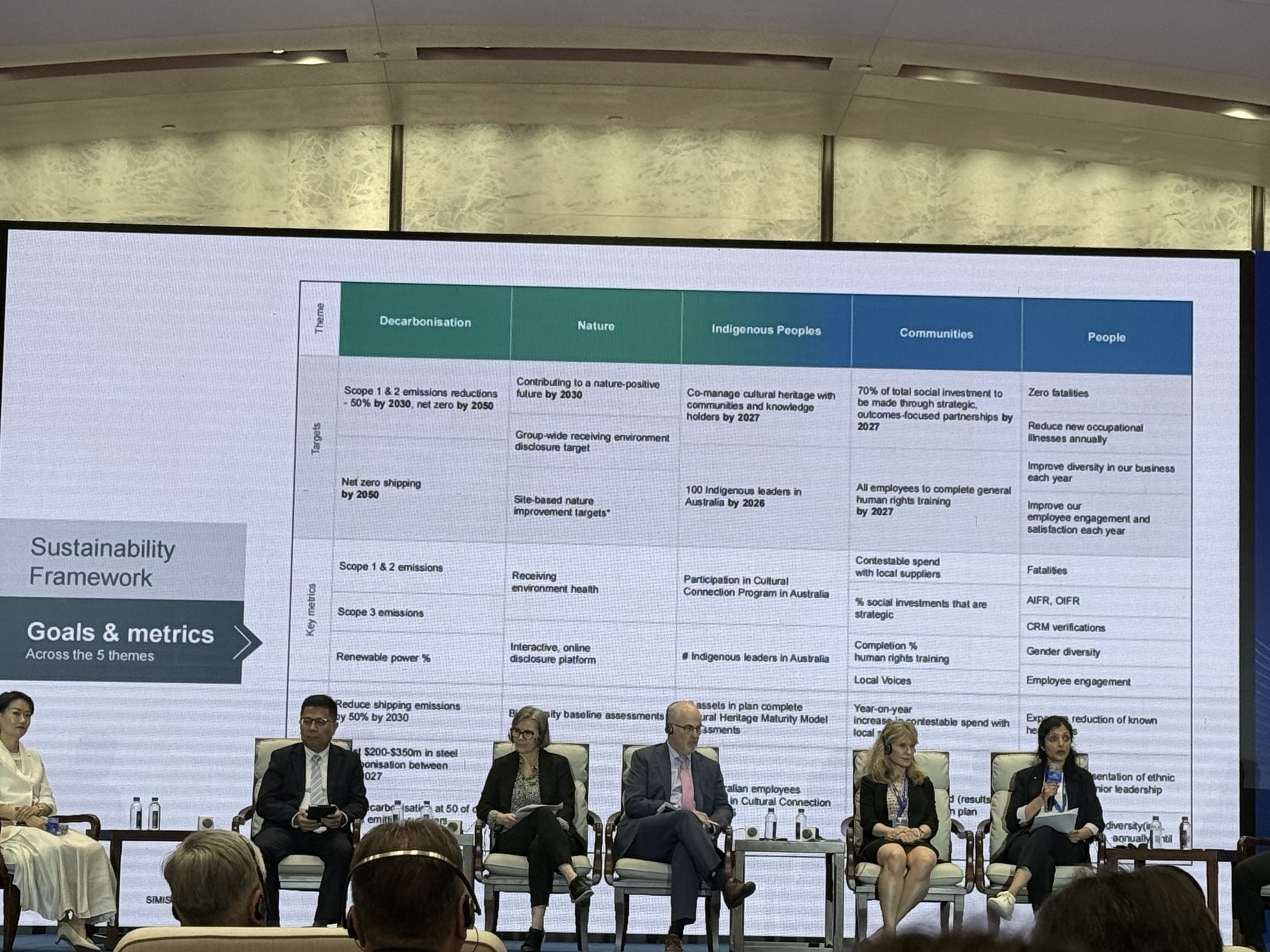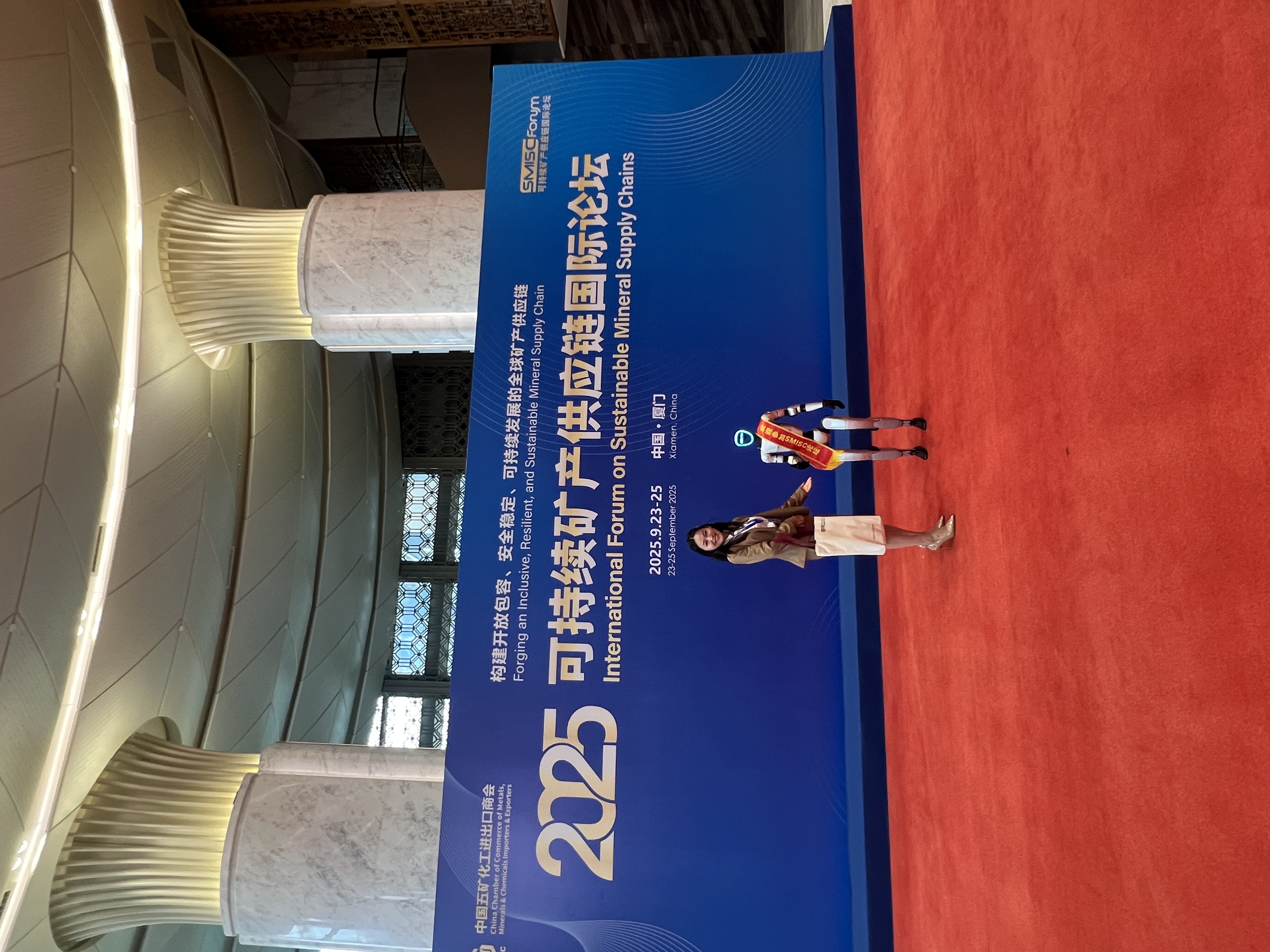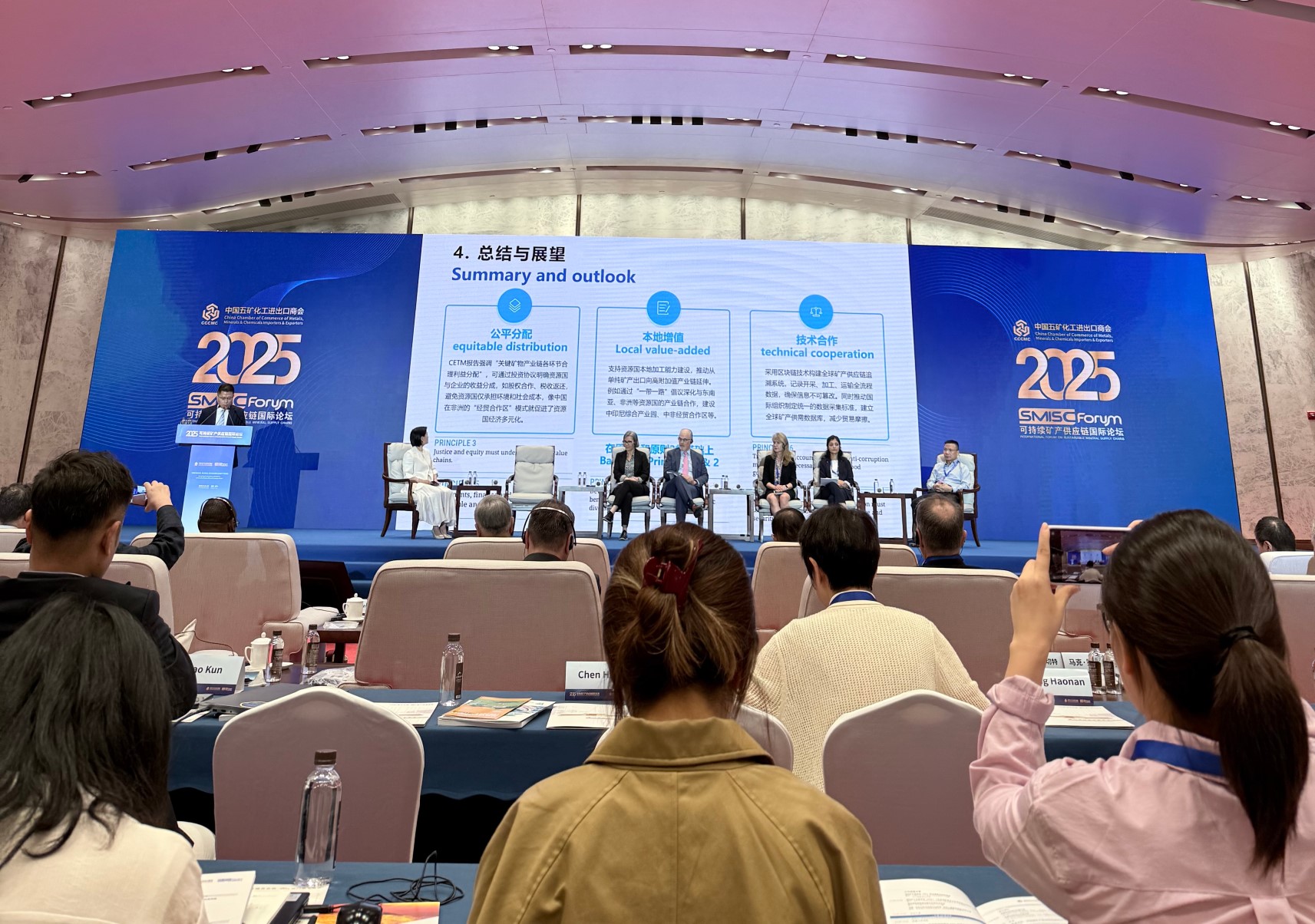
Insights from the Sustainable Mineral Supply Chain International Forum

This September, Jia Zuo, a research associate at Carl von Ossietzky University Oldenburg and member of our research cluster, travelled to Xiamen to attend the The International Forum on Sustainable Mineral Supply Chain (SMISC Forum). Jia’s research focuses on sustainable supply chain management, corporate social responsibility, and sustainability governance, with a particular emphasis on critical minerals such as tin, tungsten, tantalum, gold, and cobalt—key resources for the green economy and sustainable technologies.
The SMISC Forum provided an opportunity to connect these research interests with global discussions on transparency, resilience, and inclusivity in mineral supply chains, bringing together policymakers, industry leaders, and researchers to exchange insights on sustainable governance and community engagement
Below, Jia shares her reflections and key takeaways from the conference:
"Last month, I had the honour of attending the Third Sustainable Mineral Supply Chain International Forum (SMISC Forum) in Xiamen, hosted by the China Chamber of Commerce of Metals, Minerals & Chemicals Importers & Exporters (CCCMC). The forum's core theme, “Forging an Inclusive, Resilient, and Sustainable Mineral Supply Chain,” aligns closely with the Go-Chain project's core topics on “Sustainable Governance in Global Value Chains.” My doctoral research focuses on sustainable supply chain management, specifically integrating and analysing sustainability dissemination mechanisms in the global supply chain.
The forum featured diverse themes: industry supply chain transparency and ESG compliance practices; implementation pathways and opportunities for sustainable mineral supply chains; China-Germany value chain collaboration: exploring automotive circularity; traceability and monitoring chains for responsible mineral value chains; strategic synergy between sustainable mining and biodiversity conservation; and community engagement and mediation mechanisms.
During the conference, I actively participated in discussions on sustainable mineral supply chains and local community consultation mechanisms. I engaged in in-depth analysis of the current state, challenges, and potential breakthroughs in sustainability governance across the entire mineral supply chain—from source mines to downstream processing plants and producers of branded products. Additionally, the conference organizers invited many officials of Chinese and foreign government departments—including the Ministry of Commerce, Ministry of Foreign Affairs, and embassies of Zambia and the Democratic Republic of the Congo in China—as well as international organizations such as the International Labour Organization and the Geneva Centre for International Security and Governance, the International Nickel Association, and representative industry enterprises, who shared perspectives on the upstream and downstream aspects of mineral supply chains.
During the event, I thoroughly reviewed the “Research Report on the Due Diligence Maturity of Responsible Management in Mineral Supply Chain Enterprises” compiled by the CCCMC. I also engaged with numerous domestic and international research institutions, NGOs, and corporate representatives. Based on conference discussions, we identified the following key issues:
1. Sustainable development within the mineral supply chain exhibits significant imbalances. While upstream and downstream players hold considerable influence, downstream supply chain due diligence efforts often fail to effectively cascade to upstream mining enterprises.
2. Upstream mining enterprises often have established sustainability management systems and regularly publish sustainability reports. They perceive some of the downstream due diligence requirements as unrealistic, involving redundant audits and inefficient use of existing materials.
3. ESG-related issues in supply chains are not necessarily one-way or two-way information flows; they often form strategic alliances with shared interests. Shareholders or investors also impose sustainability demands and drive progress in mineral supply chains.
4. Improving supply chain sustainability governance largely depends on information transparency and rule consistency—such as carbon emissions accounting standards and ESG audit criteria for mineral supply chains.
5. Global harmonization of sustainability disclosure standards should become the trend. Mutual recognition of standards and locally-adapted standards through adoption of stakeholder feedbacks can foster healthier industry sustainability development.
Furthermore, this conference has provided me with numerous fresh perspectives. These include Transparency International's report on state-owned enterprises' role in African mineral development; the London Metal Exchange's (LME) guidance for export-oriented enterprises in responsible sustainable supply chain governance; and the Battery Passport Initiative's due diligence on sustainable governance for critical minerals within value chain traceability. I eagerly anticipate the emergence of innovative industry governance solutions through these diverse initiatives. Thank you!"
Wann & Wo
Leuphana University Lüneburg



